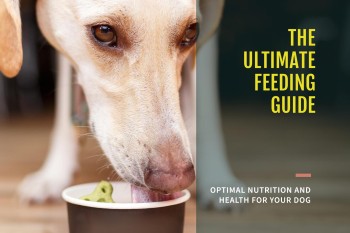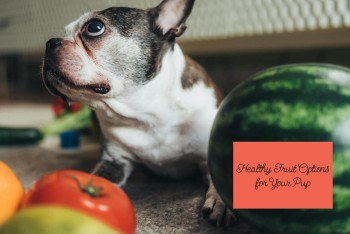Can Dogs Eat
Vegetables?
As veterinarians, one
of the most common questions we get from pet owners is "can dogs eat
vegetables?" The short answer is yes, dogs can and should eat some veggies
as part of a balanced diet. Vegetables are a healthy way to provide vitamins,
minerals, fiber and phytochemicals. However, not all vegetables are safe or
appropriate for dogs. As experts in canine health and nutrition, we have
compiled this ultimate guide on feeding produce to dogs.
An Overview of Vegetables for Dogs
Vegetables can be a
nutritious addition to your dog's diet. Here are some of the benefits:
·
Vitamins and minerals - Many vegetables like carrots, spinach and broccoli are
loaded with essential vitamins like Vitamin A and C as well as minerals like
calcium and iron. These serve important roles in your dog's vision, bone
health, immunity and more.
·
Fiber - Vegetables are
also great sources of fiber. Fiber helps regulate digestion and promote gut
health in dogs. It also helps them feel full.
·
Antioxidants -
Colorful veggies are packed with antioxidants. These help prevent disease and
cumulative damage from toxins and free radicals in your dog's body.
·
Low in calories - Unlike treats or table scraps, most vegetables are low
in fat and calories, making them a healthy choice.
Now that we've covered
the main benefits, let's explore some specifics on which vegetables dogs can
and can't eat.🚀
Vegetables Dogs Can Eat
Most vegetables are
perfectly healthy and beneficial for dogs to consume. According to veterinary nutrition
guidelines, there are some vegetables that can make up 5-10% of your dog's
total daily calories. Here are the most common and safe to feed:
Carrots
An excellent source of
vitamin A, vitamin C and calcium, carrots are also a classic treat many dogs
love. Baby carrots can be fed raw for a crunchy snack. For older dogs, cook
carrots to soften them before feeding.
Carrots are over 90%
water, so they can be useful for hydration too. Just watch portion sizes since
too much vitamin A can be toxic in high amounts. Stick to a few baby carrots or
pieces per day.
Broccoli
Part of the highly
nutritious brassica family, broccoli contains a powerhouse lineup of vitamins,
minerals and phytochemicals. It offers nutrients like vitamin C, K, iron,
folate and potassium. Additionally, broccoli provides antioxidants and fiber.😋
However, broccoli also
contains isothiocyanates which can irritate the gastrointestinal tract in some
sensitive dogs. Always start with small portion sizes and monitor your dog's
reaction when introducing new vegetables. Only feed cooked broccoli rather than
raw.
Spinach
Leafy greens like
spinach are low in calories and provide lutein, zeaxanthin and other
carotenoids to support eye health. Folate, niacin, zinc and vitamins round out
spinach's nutritional value too.
Since spinach is high
in oxalates which interferes with calcium absorption, it should be fed cooked
and in moderation. Also, it does contain some compounds which in huge
quantities could cause upset stomach or kidney stones. But occasional moderate
portions of cooked spinach are beneficial.
Sweet Potatoes
An excellent
alternative to white potatoes, sweet potatoes contain vitamin A, vitamin C,
potassium and fiber. They have the added benefit of turmeric, an
anti-inflammatory phytochemical.
You can cook sweet
potato slices or cubes to enhance digestibility. Some dogs may experience gas
or digestive upset from too much starch, so monitor your pup's reaction. But
overall, sweet potatoes in moderation are one of the top dog
food ingredients.
Green Beans
Since they are low
calorie, green beans can be the perfect weight loss food for overweight dogs.
They provide vitamins A, C and K along with thiamine, iron, magnesium and more.
Their high fiber and protein is beneficial while being low fat.
Look for low sodium
varieties and serve green beans cooked rather than raw to allow easier
digestion. Some dogs may not chew beans adequately on their own, posing a
choking risk, so dice or mash them.
Overall, green beans
can be served a few times per week as a tasty treat. Dogs might not love
crunching on plain beans though, so adding some broth, cheese sprinkles or rice
can enhance palatability.😆
Asparagus
In the same plant
family as broccoli, asparagus offers vitamin K, folate, iron and antioxidants.
The vegetable spear shape makes them ideal handheld treats. However, avoid the
white stem portion since this is harder to digest.
Since asparagus contains
purines which can exacerbate kidney and bladder stones in predisposed dogs,
only feed occasionally and in moderation if your pet has a history of urinary
tract conditions. Cook spears until just tender for optimal digestion and
palatability.
Other
Veggies Dogs Can Eat in Moderation
Nearly all vegetables
contain beneficial nutrients and antioxidants dogs can safely consume. Besides
the veggies listed above, additional produce dogs can eat in moderation may
include:
·
Bell peppers
·
Brussels sprouts
·
Butternut squash
·
Carrots
·
Cauliflower
·
Celery
·
Chard 🌱
·
Cucumbers
·
Eggplant
·
Kale
·
Pumpkin
·
Snow peas
·
Zucchini
When introducing new
vegetables, begin with a small amount such as a spoonful or two to see how your
dog tolerates it. Gradually work up to a few tablespoons daily for small dogs
or around 1⁄2 cup for larger breeds as the maximum amount.
Cook vegetables
thoroughly until very soft for easiest digestion. Dicing, chopping or mashing
produce into small pieces also allows better breakdown during digestion.
Vegetables to Avoid Feeding Dogs
While most vegetables
pose little risk to dogs, there are a few to completely avoid including:
Onions
Onions contain
compounds called disulfides and thiosulfates which damage red blood cells and
cause anemia in dogs when ingested. Garlic, shallots, leeks and scallions
contain these same compounds, so should also be avoided.
Avocado
The bark, pit and
leaves of avocados contain persin, a toxin dangerous to dogs. However, the
fleshy part humans eat has much lower levels of persin. Still, digestive issues
are common from dogs eating avocado so it's better to avoid altogether.
Mushrooms
Both store-bought and
wild mushrooms can cause liver damage and toxicity issues in dogs. Avoid
feeding any variety of mushrooms just to be safe.
Raw Potato
Potatoes contain
solanine, chaconine and other compounds which can negatively affect dogs.
Cooking helps deactivate these toxins, however it's still possible for dogs to
have reactions to potatoes including vomiting, diarrhea or heart problems in
severe cases. For safety's sake, try other veggies instead.😟
Tips for Feeding Vegetables
Now that you know
which vegetables dogs can and can't eat safely, here are some tips for
incorporating them into your dog's menu:
Cook thoroughly
Always cook vegetables
to increase digestibility and deactivate antinutrient compounds found in some
veggies raw. Well-cooked vegetables are easiest for dogs to break down and
utilize nutrients from.
Start slow
Begin with just a
spoonful or two of any new vegetables to check for signs of digestive upset or
intolerance before giving more substantial portions.
Dice/chop/mash
Cutting vegetables
into small pieces allows dogs to chew and swallow with less difficulty. Mash or
puree veggies for puppies, elderly dogs or those with dental disease.
Mix and match
Rotating vegetables
provides a variety of nutrients while minimizing risk of adverse reactions to
any single food.
Use as treats
Reward your dog with
bits of cooked veggies instead of biscuits during training sessions. Broccoli,
spinach and sweet potatoes can make nutritious mini treats to incentivize good
behavior.👍
Add enhancements
Mix in some broth,
rice, cheese or lean meat scraps to boost taste and acceptance if your dog
turns his nose up at plain vegetables. As long as you minimize added fat and
salt, this can encourage veggie eating.
Store properly
Refrigerate unused
vegetable portions promptly and tightly sealed. Discard uneaten fresh veggies
within 3 days to avoid spoilage.
Are Vegetables Necessary for Dogs?
While vegetables are
highly beneficial for dogs to eat, they aren't strictly necessary. As carnivores,
dogs can obtain complete and balanced nutrition without plant matter through
specially formulated commercial dog foods. However, the vitamins, antioxidants
and fiber supplied by veggies offers health advantages.
Talk to your
veterinarian about whether your dog would benefit from more vegetables based on
his age, size, activity level and medical conditions. Also discuss what amount
to feed. Usually 5-10% of calories can come from veggies but percentages up to
20% are fine for most dogs.🐶
Conclusion
Vegetables serve as
nutritious treats and additions that contribute valuable nutrients for dogs
like vitamins, minerals and fiber. While not all vegetables are safe, choices
like carrots, green beans, broccoli and sweet potatoes provide benefits without
risks in moderation.
When in doubt, check
with your vet on the safety of particular vegetables if your dog has any
underlying medical issues. But for generally healthy dogs, work cooked veggies
into your dog's diet for enhanced nutrition and health. Just introduce new
items slowly and stick to dog-friendly choices only.
With a balanced diet
containing the right vegetables among other whole foods, your dog can achieve
optimal health and longevity while enjoying tasty plant-based treats.🥕👍

















